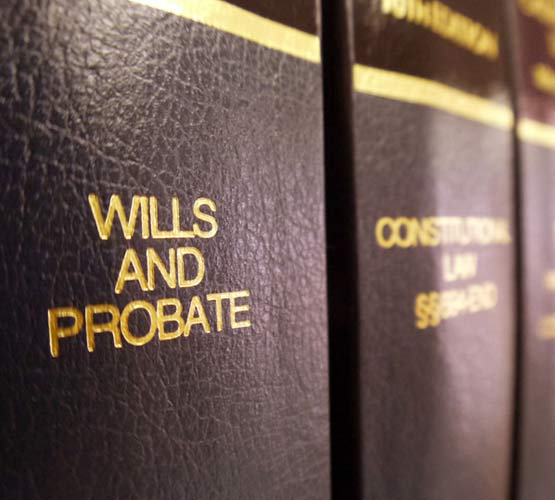Will and Probate Law

The word “will” is widely known and used and it has a well understood significance as meaning a disposition which is to take effect on the death of a person. “Will” has been defined in Section 2(h) of the Succession Act to mean the legal declaration of the intention of a testator with respect of his property which he desires to be carried into effect after his death. A will, therefore, is dependant upon the testators death for is vigour and effect. The principal test to be applied is, whether the disposition takes effect during the lifetime of the executants of the deed, or, whether it takes effect after his demise. There is no objection to one part of an instrument operating in praesenti as a deed and another in furturo as a will.
A will or any part of will, the making of which has been costs by fraud or coercion, or by such importantly as taken away from agency the testator is void. A probate has been defined under the Indian Succession Act, 1925 as under: ‘Probate’ means the copy of a Will, certified under the seal of a court of competent jurisdiction, with a grant of administration to the estate of the testator. The person who makes a Will, expresses his wishes to be executed after his death by certain persons who are generally named in the Will. The persons so named to execute the Will, are called its executors. A probate is a method through which a Will is certified, under the seal of a court. A probate establishes and authenticates the Will finally.
A probate is a conclusive proof of the fact that the Will was executed validly and is genuine and the last Will of the deceased.
Is Probate is Necessary ?
There is gross unawareness among the public at large, about the circumstances under which a Will is mandatory. Under the Indian Succession Act, 1925, a probate is mandatory when a Will is made in a place which was under the rule of the Lieutenant-Governor of Bengal or within the local limits of the ordinary original civil jurisdiction of the High Courts of Judicature at Madras and Bombay. The provisions refer to the places as were known at the time of enactment of the Indian Succession Act, 1925. These can be understood to mean the state of West Bengal and municipal limits of metro cities of Chennai and Mumbai, respectively, in present days. The above rule of mandatory probate is applicable, in case the Will is made by a Hindu, Jain, Sikh or Buddhist. It may be interesting to note that a probate is mandatory if the Will is within the geographical limits of these places, even if the Will does not deal with any immovable property.
Key: WILL & PROBATE:- Will Drafting Lawyers in Delhi, Will Dispute Litigation Lawyers in Delhi, Probate matters Lawyers in Delhi, Probate Case Lawyers in Delhi, Lawyers For Probate in Delhi, Attorneys of will draft in Delhi, Drafting Lawyers in Delhi, Contract Drafting Lawyers in Delhi, Will & Probate Law Firm in Delhi, Will & Litigations Lawyers in Delhi, Probate Trial Lawyers in Delhi
